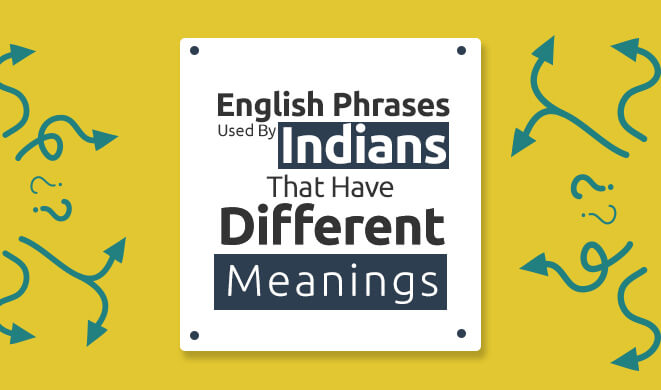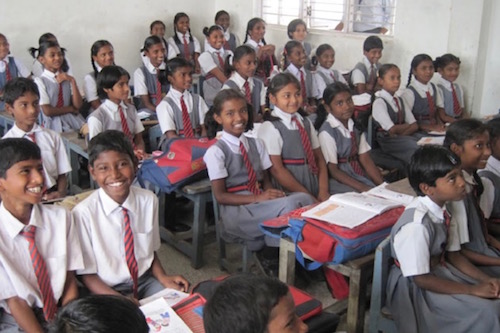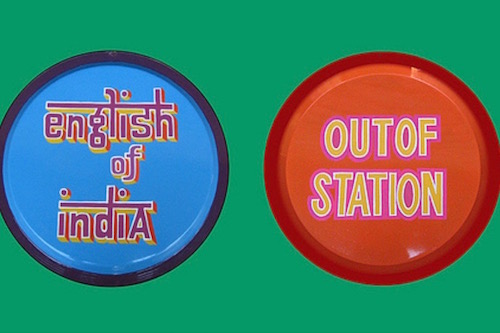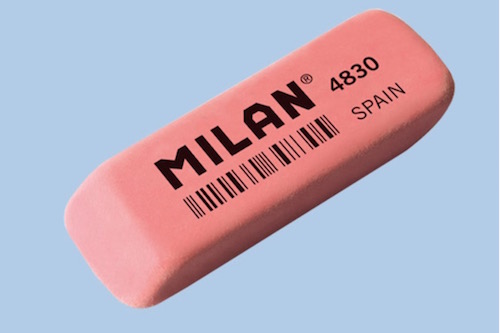English is one of the most commonly spoken languages in the world. However, word meanings can vary dramatically from one culture to the other. Comparing Indian English to the English spoken in the United States is a proof of that. In fact, several of the same English phrases exist within both cultures, but they have very different meanings.
Top English Phrases
Those differences can range from head-scratching to being hilarious. To illustrate the meaning behind this, let’s look at 18 English Phrases Used by Indians that Have Wildly Different Meanings.
1. ‘Going to School’
In India, when somebody talks about going to school, they mean attending classes before enrolling in a college (or in the U.S. terms, elementary and secondary school). The meaning of this kind of English phrases in the U.S. is the same and more. In the U.S. schooling also means going to a college and beyond.
That is the term “school” can mean everything related to study – the pre-school, middle school, completing the medical course, or pursuing a law program, attending the university, or any other kinds of vocational training.
So being a non-U.S. English speaker when you hear a grown-up person talking about “Going to school?”, you should not take it for granted that the person had been detained for years in a class. You see there’s a difference in the English phrases used by us and our US counterparts.
Image link: Indian Express
2. ‘Batch, Batchmate’
What is the difference between “Class of 2015” and “Batch of 2015”?
This question — paraphrased from an inquiry on the Stack Exchange website — is a common one for individuals trying to understand the difference in these two terms.
In Indian English, your “batch” is someone from your graduating class. “Batchmate” is generally an extension of this, as in, “He is my batchmate; we completed college in the same year.”
U.S. English does not use batch in an educational context. Rather it describes a quantity of things. (“I’ll make you a batch of cookies.”)
For the educational connection, U.S. English speakers use “Class” or “classmate.” These can also be used in more focused contexts (i.e. science class, my science classmate).
Image link: Elder Kingsbury Blog
3. ‘Do the needful’
While “needful” exists in U.S. English, it is never used in the same connotation as its Indian counterpart.
“Doing the needful,” in Indian English, means one should do “what is necessary” (U.S.) to complete a task.
Of course, CNN’s Daniel DMello recommends that Indians forgo this phrase altogether because “Using it today indicates you are a dinosaur, a dinosaur with bad grammar.”
“You may use the phrase humorously, to poke fun at such archaic speech, or other dinosaurs,” he added.
Image link: Reddit
4. ‘Passed Out’
Using one of these most commonly used English phrases – “passed out,” in Indian means an achievement. (Example: “I passed out of the law college.”) This means that the person has completed his graduation.
However, if you ever use this same phrase in the U.S., don’t be overwhelmed if your fellow American gets panicked and calls for an ambulance immediately. This is because this particular English phrase has a completely different meaning in the US, which means to faint.
Image link: BuzzFeed
5. ‘Mugging’
In the U.S., a mugging could be a physical assault or a vindictive gaze. It has also been used to describe the act of passionately kissing a significant other.
(Example: “She and I were mugging on the couch when her parents walked into the room.”)
In India, the meaning is far different. If you take part in a mugging here, then you are reviewing for a class or exam, usually covering a lot of material in a short amount of time.
The U.S. has a word for this act, according to The Free Dictionary, and it’s called “cramming,” or “to force, press, or squeeze (something) into an insufficient or barely sufficient space.”
Image link: New Indian Express
6. ‘I have a doubt’
Imagine the following scenario playing out in two different countries — India and the U.S. You read a friend’s research paper. He asks you what you thought of it.
“I have a doubt!” is your response.
Now, in India, most would take this one of the most commonly used English phrases this simply means that you have a question about something in the paper. This could denote intense interest or a need for clarification.
In the U.S., your friend would probably panic because he might naturally assume you doubt his thesis will stand up to scrutiny. Bad grades and perhaps a “fail” for the course are sure to follow.
This is because U.S. “doubt” is more closely attributed to skepticism or cynicism.
Image link: Margaret Pinard
7. ‘Taking Tension’
As Facebook software engineer Nishita Agarwal writes on her Quora thread, “taking tension” has an opposite meaning to what you might find in the U.S. This is the same “as getting tense,” as in, “You’ve been taking a lot of tension from [the] office,” Agarwal writes.
Agarwal is correct that “getting tense” is the U.S. equivalent of this phrase. However, you might also hear “taking tension” in the U.S. It would just typically be used to mean taking tension “out of” something.
Example: “That massage was really taking tension out of (or releasing tension from) my shoulder muscles.”
In other words, there is an opposite meaning in the U.S. and Indian English contexts.
Image link: Work at Home Rockstar
8. She is my ‘would be’
In India, a “would be” generally refers to one’s “intended” family (i.e. your “would be” is your fiancée or your “would be” in-laws are the family you inherit through marriage).
This term isn’t found in the U.S. — at least, not in the same context. American English speakers would instead confine the use of “would be” to the verb portions of certain sentences.
U.S. Example Question: “Would you be willing to watch my home while I go on vacation?”
Answer: “I would be happy to.”
That said, it still affirms intent; it’s just seldom used in the same part-of-speech as what is commonly found in India.
Image link: TataBuzz.Com
9. ‘Out of station’
Lalit Kumar writes that “out of station” got its origins while India was still under British rule.
“In pre-Independence India, the East India Company used to post its officers to particular ‘stations,’” he explains. “When they used to be out from their duty stations,” the officers would be referred as “out of station,” he explains.
The phrase is no longer used among newer generations, but it isn’t uncommon to hear some old-timers use this in place of the American equivalent, “out of town.”
Image link: FlickRiver
10. ‘Revert Back’
In India, if someone asks you to do something for them but you don’t have time in the present, then you might “revert back” to them once you get some other tasks accomplished.
American English speakers would find this peculiar since a) “revert back” is redundant in U.S. culture, according to the Vocabulary website; and b) it generally means that one goes back to a previous state of being.
U.S. speakers typically say, “Let me get back to you” on similar requests.
Image link: Recap Guide
11. ‘May I Have a Rubber?’
A “rubber” is an innocent enough term in Indian English. When you ask for one, you mean an eraser. Clearly you have made a mistake when writing a paper or working a math problem, and you need to correct it!
But asking for a “rubber” in the U.S. will get a much different reaction. That is because the word is slang for “condom,” according to the Urban Dictionary.
Moving on…
Image link: Universal Stationary
12. First-Class!
In Indian culture, the term “first-class” is all-encompassing for things that English speakers like or enjoy. New restaurant offers great food and service? “First-class!” New Star Wars film best since the original? “First-class!” Doctor help you get over an illness? “First-class!”
The closest thing to this in U.S. culture is the term “world-class,” which is generally reserved for athletes and people with special talents. However, Americans do use “first-class” when discussing top-tier seating arrangements on an airplane or a special faster method of mail delivery.
Image link: Business Insider
13. ‘Iron Man’
Indian software developer Bhasker Kode of @HelpShift references the term “Iron Man” as a literal term used in Indian English, which refers to a “man in the neighborhood who irons.”
The U.S. uses this phrase in more metaphorical terms, usually in an athletic context. An “Iron Man,” to U.S. English speakers, refers to a person of multiple disciplines, abilities, and stamina. For example, if you play on both offense and defense units in American football, you’re said to be playing “Iron Man Football.”
Image link: Master Herald
14. ‘Semi-Automatic’
The Indian English phrase “semi-automatic” refers to a washer or dryer with some automatic functions, such as the kind offered here by Whirlpool of India.
It’s common for English speakers in the country to cut off the descriptor “washing machine” and just say “the semi-automatic.”
In U.S. gun culture, however, this short-hand phrase has a much more lethal connotation, referring to a type of firearm that requires manual chambering before firing (also what HowStuffWorks refers to as a “closed-bolt system.”)
Image link: PBS
15. ‘Do you need a tissue?’
If someone asks you this in America, they’ve noticed you crying over a heartfelt scene from a TV show or movie.
If an Indian English speaker asks you this, they are referring to what the U.S. calls a “napkin.” Better check the mirror to see if there is any food stains on your mouth or shirt!
Image link: BarkPost
16. ‘UPS’ or ‘U.P.S.’
Ask “Did UPS deliver the package?” in India, and you may get a confused face looking back at you.
Chances are, the recipient of such a question is wondering what “uninterrupted power supply” has to do with your package.
Pose that same question in the U.S., however, and the person will understand immediately that you are talking about the “United Parcel Service”.
Image link: Wall Street Journal
17. ‘Cousin Sister’ or ‘Cousin Brother’
In the U.S. this is one of the English phrases that is used to refer to a cousin, sister, and brother, are three distinct relationships within a family unit.
India, however, will combine the two so that you have a “Cousin Sister” to denote a female cousin and a “Cousin Brother” to denote a male cousin. The U.S. in contrast would refer to a brother or sister as a “sibling” and a cousin as a separate relation.
Image link: Daiji World
18. ‘I Have a Crib’
U.S. English speakers, who speak in such a way about their “crib” are talking about their physical place of residence, as in a home, apartment, or room.
(See MTV Cribs for the full effect.)
India English speakers, on the other hand, use “crib” when they wish to make a complaint or a “gripe” (U.S. equivalent) about something.
Image link: SoundX
While the above represents a good start on the Indian English phrases that have wildly different meanings from their U.S. versions, we here at GrabOn know it is not complete.
What are some other English phrases you’ve heard that would fit in on this list? Share your suggestions in the comments section below!



















4 comments
HAHAHA this is so true! I have an Indian friend who invited me to his hometown Dehli for the summer holidays last year and I was so surprised by seeing the variations in phrases and words! It was hilarious in an oddly adorable way. Ah, you guys brought back good memories!
OMG! I can relate so much! I’m from that part of the world and this is absolutely how it is :D Some of the things mentioned here are those which even I say wrong on daily bases :P *Embarrassed*
Funny But so Trueee
hahahaa.. VERY spot on. I have an indian friend (Sujith) who always says “I have a crib to report” whenever he wants to complain in a shop or restaurant… hilarious!
I also lived in India for a whole year (in Kerala) and can remember many of the other examples explained.